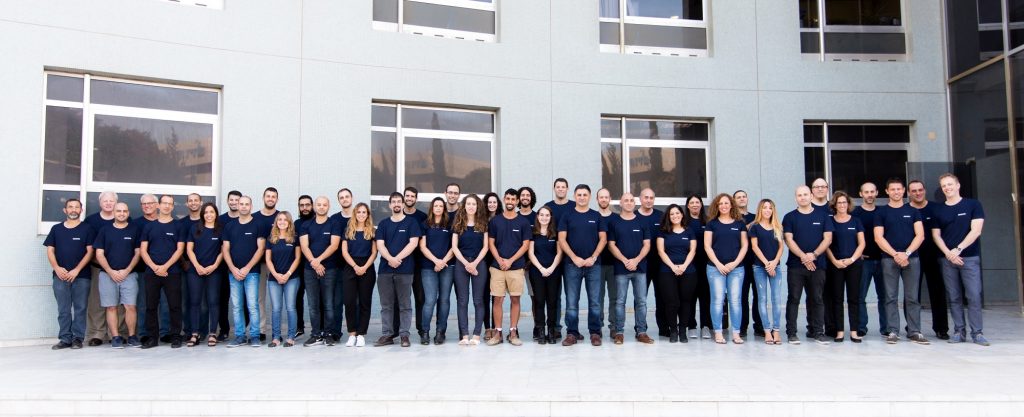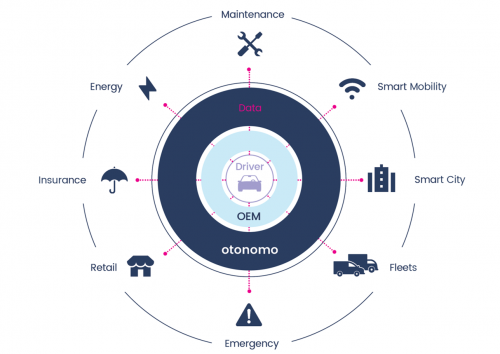
Connected cars: otonomo delivers data to power a smoother drive
By 2020, a quarter billion cars worldwide – or 1 in 5 – will have wireless connectivity, according to research and advisory firm Gartner. All those connected vehicles, including vehicles built and driven in Asia, will produce enormous amounts of data.
Sensors and cameras will measure and record everything from traffic and weather to fuel consumption and performance. They’ll track your whereabouts, speed, mileage and favorite radio stations, and they’ll know if you stop for coffee or use a Bluetooth headset.
ALSO READ: Artificial Intelligence and Formula One: Bots on pole position in the race for technology
The data is expected to generate increasingly bigger revenues for car manufacturers as they create and sell more of it. But how will data lead to better driving experiences for consumers? How do auto companies comply with global privacy laws, dig through gigabytes of raw data, and create something valuable and innovative?
That’s where Israeli startup otonomo comes in. Co-founded by CEO Ben Volkow in 2015, otonomo has created a marketplace that enables car manufacturers, service providers and app developers to easily and securely exchange car data.
The company operates in the United States, Europe, and Japan. It raised USD25 million last year for a total of USD40 million in funding; and is growing rapidly with more than 55 employees. It is engaged with nine car manufacturers, that include Daimler as well as with automakers in Japan, where it is also partnering with telecommunications giant, NTT.
ALSO READ: Embarking on a never-ending digital transformation journey
With a platform powered by Microsoft Azure, otonomo pulls 20 to 500 data points a minute from individual cars – a total of tens of gigabytes an hour – and makes it available to emergency services, parking apps, insurance companies, smart cities, financial firms, retailers, car dealerships and many other organizations. At the AutoMobility LA show in Los Angeles a few weeks ago, Volkow, a serial entrepreneur, chatted about the role of otonomo and how data is revolutionizing how we get around.

Transform: How does car data help businesses, and lead to better, safer and more productive driving experiences?
Volkow: People are starting to expect the smartphone experience on the car console. Car manufacturers understand that by building an ecosystem of services and applications in the car, they create a better driving experience for customers. If the car has an app that helps you find parking, it’s a better car. If it has an emergency app that literally saves your life, it’s a better car.
There’s a trend today for insurance companies [to price rates] according to your mileage or driving style. To do this, you need car data. You get a discount if you share your car data and pay according to your mileage and driving style. We help insurance companies get to the data they need to help drivers ultimately get the best plans.
We can also help with predictive maintenance. The top two reasons for cars getting stuck on the side of the road are running out of fuel and having a dead battery. This costs insurance companies a lot of money, because they have to send a tow truck.
Using real-time car data, we can identify, for example, if your battery is about to die and facilitate the insurance company sending you an alert so you can get a new battery, preventing you from being stranded. That saves insurance companies money and you from waiting for many hours by the side of the road.
We also work with banks that want to learn about customer spending. If you use their credit card, they already know your spending patterns. But what if you have a couple of credit cards? We can tell them you stopped at a fuel station and how many gallons you put in the car. We can help them understand if you stopped at a McDonald’s drive-through or other places.
The data helps with contextual advertising, so, for example, the next time you’re running low on fuel, you might get a coupon guiding you to a partner gas station.
Lastly, smart cities can use car data to cue traffic lights and understand the effect of different speeds. We get information on wheel suspension, hard braking, acceleration and location, so cities can know if there are dangerous places on the road and fix them.
Why do car manufacturers give their data to otonomo? Can’t they and other businesses just exchange data directly?
 Volkow: Getting data out of the car is very expensive and complex. You need a cloud infrastructure and there are technical and commercial challenges for car manufacturers and services that want the data.
Volkow: Getting data out of the car is very expensive and complex. You need a cloud infrastructure and there are technical and commercial challenges for car manufacturers and services that want the data.
For example, fuel data. Some manufacturers use gallons; others use liters. Some use percentage used; some use percentage left. Someone needs to normalize the data, because services cannot digest 40 languages and formats.
Everything happening in the new auto industry – autonomous driving, self-driving cars and shared mobility – is all based on data. Data is the future. I tend to agree with the saying that “data is the new oil,” but someone needs to take the data out of the oil field, refine it, distribute it, anonymize it, price it and make sure the right oil goes to the right car. This is where otonomo comes into play.
How do you deal with global privacy laws?
Volkow: For starters, we are on track to comply with the European Union’s General Data Protection Regulation, which takes effect in May.
Every country has its own regulations on car data and it creates many complex layers of restrictions. We make it easy and secure for car manufacturers with thousands of rules configured in our system.
In the U.S., insurance companies are not allowed to get the location of the car. Why? To prevent discrimination between “good” and “bad” neighborhoods. In Germany, you are not allowed to share the first 30 seconds of GPS data, because it affects privacy. In France, insurance companies are not allowed to get the time stamp with data.
Here is one example that I think is very interesting: Let’s say there is a German car in Belgium driven by an Italian woman whose British boyfriend owns the car, and the data is going to the U.S. And by the way, the car manufacturer doesn’t own the data, the consumer does; the manufacturer is only the custodian.
What are the applicable laws? I know that this is a bit of a funny example, but it demonstrates that understanding the data and the laws can be very complex.
Speaking of privacy, what’s your response to consumers concerned about the tracking and monetizing of their car data and driving behaviors?
Volkow: The good news is that there are many more restrictions on car data compared to phone and computer data in how your data is used. But drivers do get benefits from sharing their data: To name a few, they get cheaper insurance, emergency services that can save lives and help in finding parking that saves time.
If we go back five years ago to when we learned that someone is looking at what we do with our smartphone, we all freaked out. Today, we live with it. I wonder if we will have this discussion in five to six years about car data and will say it’s just part of life. I think in the end, we’ll get used to it.
Top photo: Ben Volkow, CEO and co-founder of otonomo. Photo by Omer Hacohen and courtesy of otonomo.
ALSO READ: Embarking on a never-ending digital transformation journey













